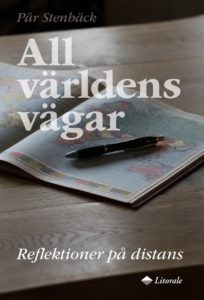The end of the Cold War after the collapse of the USSR did not bring about the kind of détente and rapprochement that many had hoped for; on the contrary we are again living in a world of heightened tensions, use of military power politics and an arms race.
I am of the view that the West made many mistakes in its treatment of Russia 30 years ago.
The Eastern Partnership as an example. I recall how Sergei Lavrov some ten years ago at a lunch meeting of the EU Foreign Ministers told us, that when the EU started its EP with Armenia, Azerbaijan, Belarus, Georgia, Moldova and Ukraine Russia proposed to the Commission that they would like to be invited as observers, but received no reply from the EU. Not one of the 28 ministers or the Commissioner present at the table commented this in any way.
I found this rather strange and when the same ministers were discussing Russia a few weeks later at the lunch table I reminded them of what Lavrov had said without getting any response. But no-one responded to my remarks either.
At the very least this is an indication of poor communication. Of course we do not know whether better communication and a more cooperative policy from the west would have prevented Russia from resorting to destabilizing the Ukraine and the annexation of the Crimea and from other unacceptable acts that have contributed to the present confrontation.
Irrespective of whatever mistakes the US, the EU and the West in general made in its treatment of Russia, that does not in anyway justify or excuse the violations of international law that Russia has committed, nor put into question the measures that the West has had to adopt in response and which all the Nordic countries have joined.
We do not expect our Russian colleagues to remain silent about what they see as wrongs in western policies; and we should be open also as to what we see as wrongdoings by Russia.
But the history of the Post Cold War period leaves us with lessons to be learned and for adjusting our policies so as to avoid further negative escalation and to be able to find ways to return to more normal and less hostile relations and cooperation with Russia.
I would sum up one lesson to be learned: never underestimate the degree of paranoia in Russia about western intentions.
We all know that Nato has no intention of attacking or even the capability to attack Russia. Nevertheless many Russians actually do believe that the west has malign intentions vis-à-vis their country, even if political leaders may cynically promote these suspicions without believing in them themselves.
Therefore it is important for us, including also the Nordic countries who are parties to Nato military exercises, to refrain from engaging in unnecessary provocative acts, which only serve to heighten tension without enhancing our security in any way.
The Nordic Council is committed to enhancing peaceful cooperation and stability. The Council commissioned a report published in 2019 called New Nordic Peace: Nordic Peace and Conflict Resolution Effort. All the Nordic countries are known for their commitment to the UN and multilateral cooperation, for their contributions to peace keeping and crisis management operations and for their efforts at conflict resolution.
The Nordic Council also wants to engage with Russian parliamentarians. Our co-operation between the Nordic Council and Russia focuses on an annual roundtable meeting between the State Duma, the Federation Council, PANWR (North West Russian parliamentarians) and the Nordic Council Presidium during the Nordic Council’s Session, as well as an annual study programme (Nordic Council Study Programme for Russian Parliamentarians) for federal and North West Russian parliamentarians in one of the Nordic countries.
Regional cooperation is a good example of how mutually beneficial cooperation can be continued without letting confrontations with their roots in other parts of the world disrupt the pragmatic work carried out in organisations such as the Arctic Council, the Eurobarents council and the CBSS as well as the Northern Dimension, which is the partnership between the EU, Iceland, Norway and Russia.
I want also to emphasize the important role of crossborder civil society contacts and projects. Unfortunately this has not been made easier by the present trend of branding many civil society organisations as “foreign agents” and restricting or even banning their activities by the Russian authorities.
This has also been applied to the information office of the Nordic Minister Council which has not made our work easier.
Think globally, act regionally could be an appropriate principle also which we should recognize as the guiding paradigm for Nordic-Russia cooperation.
In the big picture, what we need in the world is global cooperation to tackle the fundamental issues of climate change and the loss of biodiversity. These are also issues where we can and must do much more in regional cooperation in all the regional organisations mentioned above.
Likewise we need to end the arms race, the development of new nuclear weapons systems and the spread of killer robots. The Nordic countries should enhance their cooperation on disarmament and arms control issues, develop new initiatives and engage the big powers – China, Russia, US – in serious negotiations, and set an example by signing and ratifying the Nuclear Weapons Ban Treaty. Civil society actors in the Nordic countries and Russia should coordinate their efforts on these issues.
Finally a word on Confidence Building Measures. These are issues where the Nordic countries can and should also be active. While CBMs can be initiated also unilaterally they have to reciprocated at some point if they are going to make a lasting and real contribution to peace.

